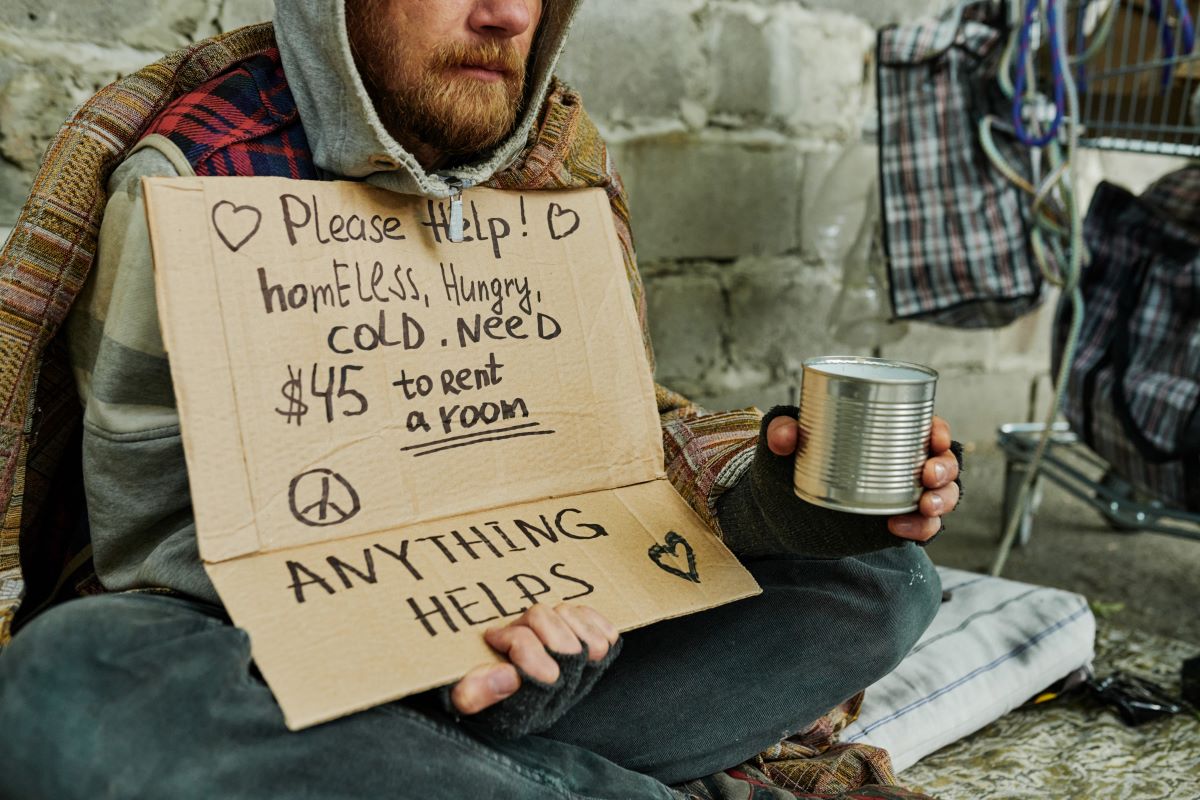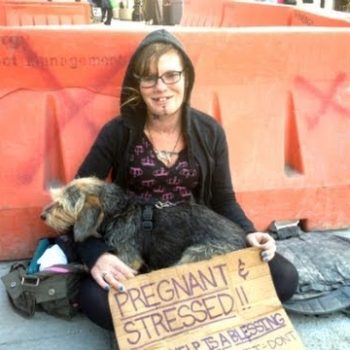Homeless advocates are working to defeat a proposed ordinance in Monongalia County, West Virginia, that seeks to prevent homeless people from panhandling on county roadways.
According to its text, the proposed ordinance would prohibit “interaction or exchanging of items between pedestrians and occupants” on roadways with speed limits of at least 35 miles per hour and an annualized daily traffic flow of 4,000 vehicles or more. Nearly every road in the county meets those qualifications. People who violate the law can be given a citation and subjected to a $100 fine for each violation.
Homeless advocates said the law targets the county’s underprivileged community, while supporters argued the law is necessary to protect public safety.
Some local law enforcement officials like Monongalia County Emergency Medical Services Executive Director Forest Weyen and Star City Police Chief Jessica Colebank told the Monongalia County Commission during its Aug. 16 meeting that they support the ordinance. However, both officials told the commission in separate emails that the law should be clarified to exempt first responders.
Advocates like the local League of Women Voters and Mountain State Justice, a nonprofit law firm, weren’t sold on the law.
The League of Women Voters sent a letter to the commission saying the ordinance would “violate the human rights” of one part of the community “under the guide of protecting public safety.”
“This ordinance appears to be one more attempt among many to remove from sight what the more privileged citizens of Monongalia County deem distasteful,” the letter read in part. “However, merely relocating the problem doesn’t solve it.”
Similarly, Mountain State Justice described the ordinance in a letter as “unconstitutional” and said it is illustrative of “targeted animus” toward homeless people by local officials. The organization added that the law is too broad and could be used to stifle other forms of protected speech.
“In short, the ordinance prohibits only one thing: constitutionally protected speech,” Leslie Nash, MSJ’s executive director, wrote in a letter to the commission.
No one who attended the Aug. 16 public hearing for the ordinance spoke in favor of it. Instead, several community members spoke against the ordinance and described it as a solution in search of a problem. The commission voted 4-2 to revise the ordinance and resubmit it for a public hearing in mid-September.
Why Anti-Panhandling Legislation is Ineffective
The proposed ordinance is also symbolic of a growing movement to regulate the visibility of homelessness in cities nationwide.
Several cities stretching from Fort Collins, Colorado, to Lowell, Massachusetts, and Tampa, Florida, have attempted to regulate public homelessness through panhandling ordinances for several years. However, the ordinances have often been struck down by the courts.
In March, the U.S. District Court filed an injunction against The City of Montgomery, Alabama, preventing it from enforcing its anti-panhandling ordinance. That ruling came after state officials admitted the law violated a person’s right to free speech.
“Criminalizing the solicitation of charitable donations does nothing to advance public safety,” Tish Gotell Faulks, legal director for the American Civil Liberties Union of Alabama, told the Associated Press. “Instead, it multiplies already existing barriers for people experiencing homelessness.”
That ruling hasn’t stopped Alabama lawmakers from continuing their attempts to limit the free speech of the state’s homeless population. Shortly after the Montgomery decision was handed down, lawmakers introduced new legislation aimed at preventing people from loitering on public roadways.
Republican Rep. Reed Ingram told the AP that the bill is a “public safety bill.”
“We’re going after making the roads safer,” Reed said.
How You Can Help
Now is not the time to be silent about homelessness in West Virginia or anywhere else. Unhoused people deserve safe and sanitary housing just as much as those who can afford rent or mortgage.
Poverty and homelessness are both policy choices, not personal failures. That’s why we need you to contact your officials and tell them you support legislation that:
- Streamlines the development of affordable housing
- Reduces barriers for people experiencing homelessness to enter permanent housing
- Bolsters government response to homelessness
Together, we can end homelessness.













